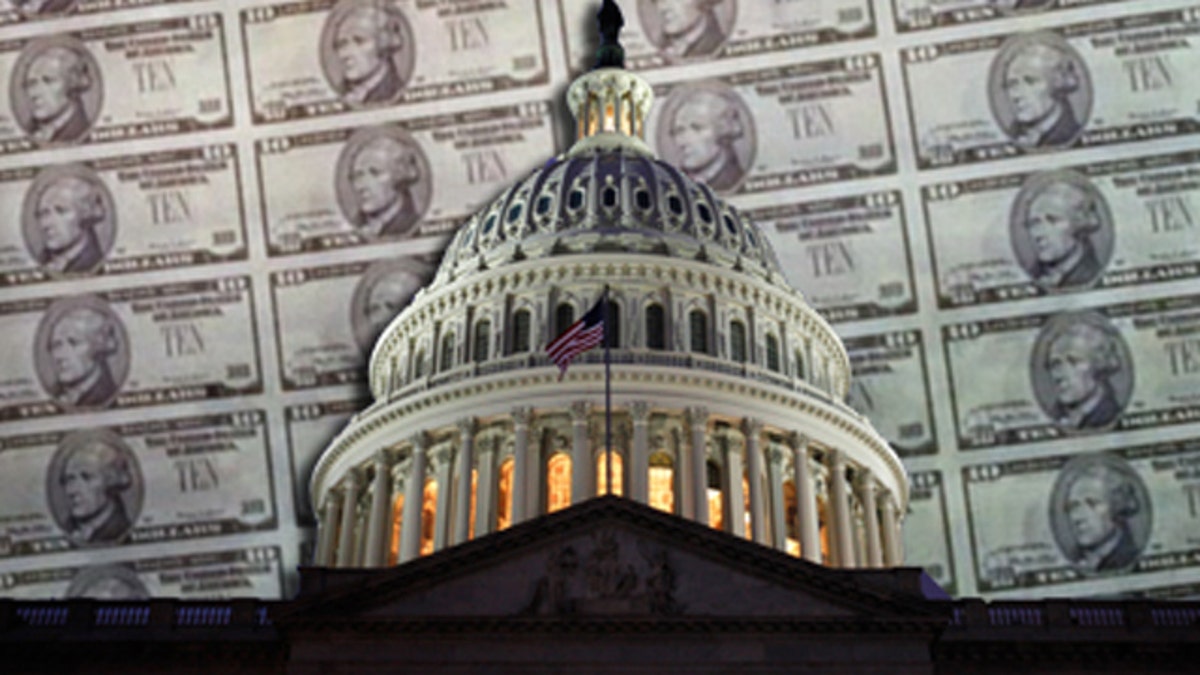
WASHINGTON -- Thousands of companies that cashed in on President Obama's economic stimulus package owed the government millions in unpaid taxes, congressional investigators have found.
The Government Accountability Office, in a report being released Tuesday, said at least 3,700 government contractors and nonprofit organizations that received more than $24 billion from the stimulus effort owed $757 million in back taxes as of Sept. 30, 2009, the end of the budget year.
The report said the tax delinquents accounted for nearly 6 percent of the 63,000 contractors and grantees examined, and it cautioned that the real number might be higher because the known tax debt does not measure such factors as income underreporting.
Among the examples was an engineering firm that received a $100,000 stimulus act contract but owed $6 million in taxes. The IRS called it "an extreme case of noncompliance." A social services nonprofit that received more than $1 million in stimulus funds owed taxes of $2 million.
The GAO referred those two cases and 13 others to the Internal Revenue Service, the country's tax collectors, for further investigation.
On Tuesday, a Senate Homeland Security and Governmental Affairs subcommittee will hold a hearing on the report.
Federal law does not prohibit tax delinquents from getting government contracts or grants, though there are provisions that enable the government to withhold payments in some cases. While the federal government requires contractors to present documentation that their taxes are paid, some recipients escaped federal review because the money was disbursed at state or local levels.
Democratic Sen. Carl Levin, chairman of the investigations subcommittee holding the hearing, said it has been known for years that a few federal contractors and grantees do not pay their taxes.
He said a program to recover money from tax delinquents has been strengthened, and "the executive branch has made it clear" that nonpayment of tax can be grounds for denying a specific contract or barring a contractor from bidding on any contract. He added that the executive branch should "get on with it" and bar "the worst of the tax cheats from the contractor work force."
"It is a matter of basic fairness that those who take government money should be required to pay their taxes like everyone else," said Sen. Tom Coburn, the panel's top Republican. "That such a huge amount of the stimulus money went to known tax cheats should be a wake-up call for Congress."
The stimulus package, enacted in February 2009, funneled some $821 billion into the recession-hit economy. Of that, about $275 billion was designated for contracts and grants, of which nearly $200 billion had been paid out as of March 25, 2011.
The report noted that about 35 percent of the unpaid taxes were for debts incurred before 2003 and that more than half of the apparent violations, $417 million, were from unpaid corporate taxes. Another quarter, $207 million, came from unpaid payroll taxes.
The most serious documented case was a security firm that owed $9 million, mainly in unpaid payroll taxes from the mid-2000s. IRS records indicated that the company paid other creditors while shirking its tax obligations. The company, which received more than $100,000 in stimulus money, had a history of being uncooperative, missing deadlines and repeatedly filing appeals, according to the records.
Democratic Sen. Max Baucus, chairman of the Finance Committee, said every unpaid tax dollar was "added to our deficit or taken from future generations, so I will certainly use the conclusions from this report to look for new ways to ensure everyone pays their fair share."
For Republican the report provided another way to criticize Obama's recovery package. "This shows how fundamentally flawed the failed stimulus has turned out to be when Washington jams through almost a trillion dollars in spending with little scrutiny," said Sen. Orrin Hatch, top Republican on the Senate Finance Committee.
Moira Mack, a spokeswoman for the Office of Management and Budget, which oversees the stimulus program, said her agency last year collected more than $100 million in tax debts and stepped up efforts to prevent tax delinquents from receiving federal contracts.
"Companies that want federal contracts are now required to certify whether they have a significant tax delinquency and that requirement is deterring tax delinquents from getting federal contracts," Mack said. "These efforts are consistent with the steps this administration has taken through the Recovery Act to provide an unprecedented level of accountability and transparency on behalf of the American taxpayer.












































